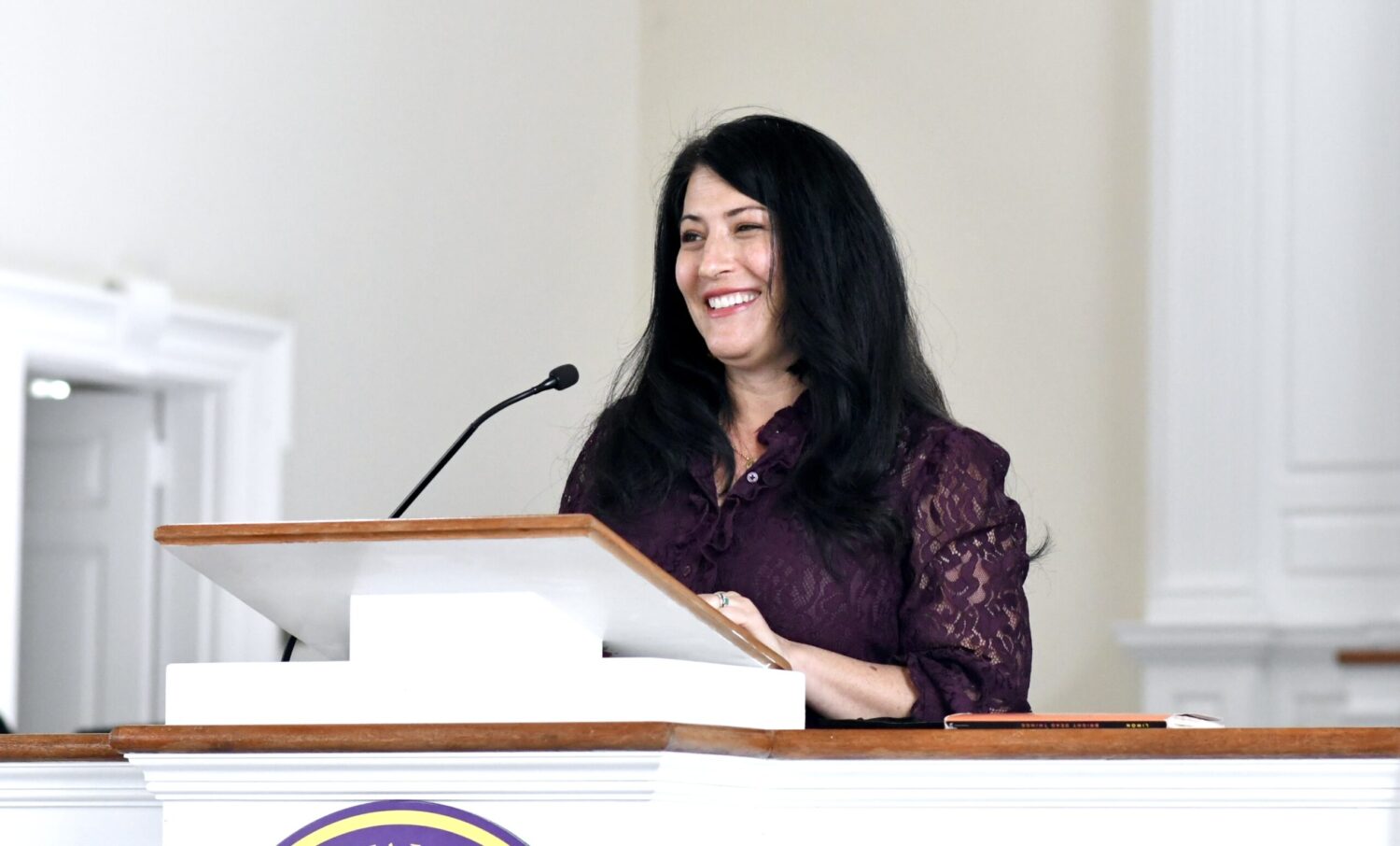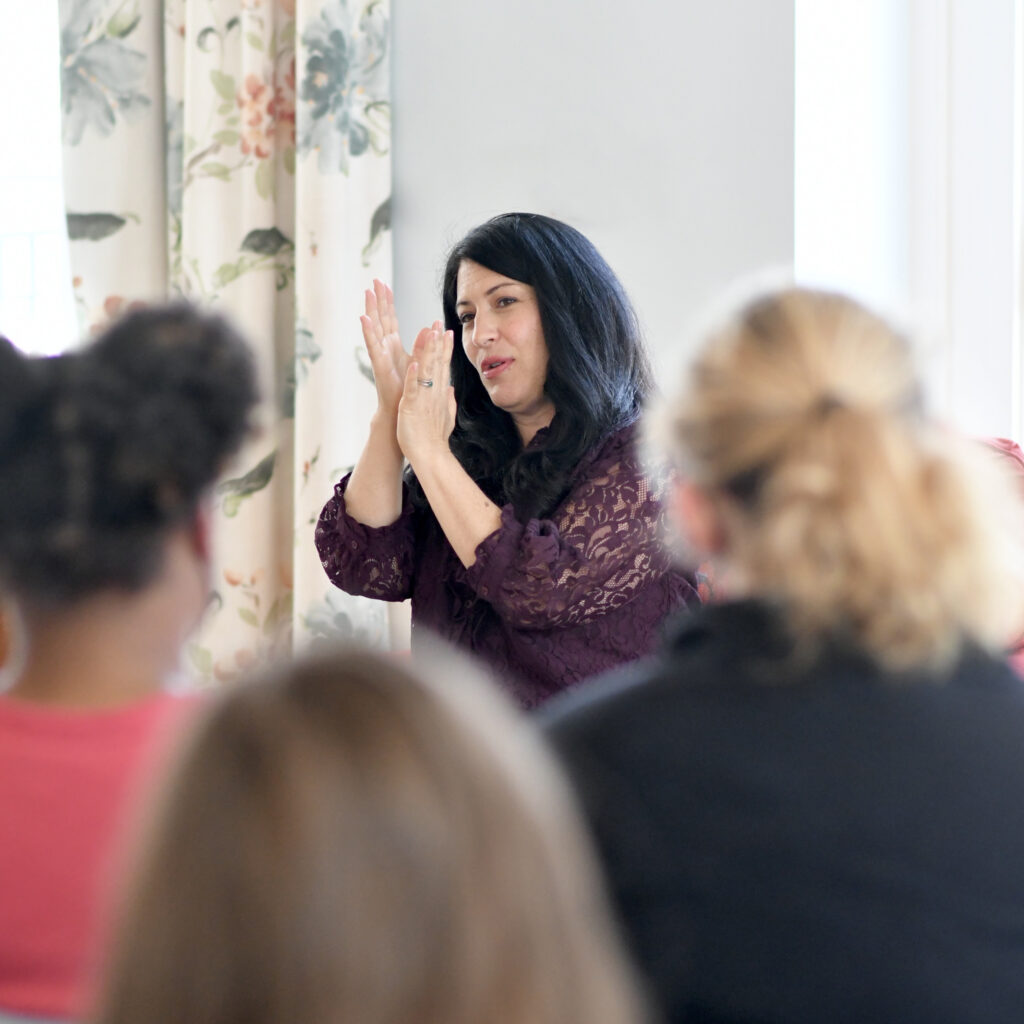
Poetry Is Proof of Life
Written by Melah Lazarus ’23
As the flowers started to bloom, Walker’s welcomed Ada Limón to campus. She is the author of six books of poetry, including The Carrying, which won the National Book Critics Circle Award for Poetry. Her fourth collection, Bright Dead Things, was nominated for the National Book Award, the National Book Critics Circle Award, and the Kingsley Tufts Poetry Award. Limón was also the host of the critically-acclaimed poetry podcast The Slowdown. Ada Limón is the 24th Poet Laureate of the United States.

For the past three months, upper school English classes dove into Bright Dead Things, The Carrying, and her most recent collection, The Hurting Kind. Each of her collections highlights particular aspects of being a woman, grief, love, and nature. We quickly learned how poetry gives you an avenue to be vulnerable and honest. Limón mentioned in a Monday afternoon master class with the Visiting Writer Seminar that there are many poems in her collections she never intended for anyone to read. Specifically with The Carrying, she told us that she had written tons of pieces about battling insomnia, vertigo, and infertility. Eventually, Ada noticed there were common themes in each poem and that prompted her to create the collection. Since Limón wrote about personal experiences, she knew it was essential to do the work to be able to speak about the poems. She extended this advice to us, in terms of sharing our work, whether it be in class or sharing it with a wider audience. Just because we have been given an assignment, it is important to acknowledge what we do and do not feel comfortable talking about.
In the days after Ada Limón’s visit, the Visiting Writer Seminar was still in awe of her. While we learned very important things from Limón, we lingered on details that might seem mundane to some, like how much she hates the wind and that her favorite color is green. We loved picking up facts like this about her, which made us all grateful for this program.
Many of the Visiting Writer Seminar students connected with The Carrying because of Limón’s ability to be profoundly honest about things we usually only think about. She laughed with us about this aspect of her career because when Dr. Carla Hayden invited her to be Poet Laureate, she thought to herself, “Here I am, writing private poems,” which seems to contradict her new role as the most public poet in the nation. We wondered together as a class if this was in fact part of her appeal: that in the act of writing to her experiences she is able to speak more specifically to the experiences of others.
As we learned in class, Ada Limón does not plan her readings and decides what poems to read based on the life experiences of her audience, which increased our anticipation for it. She shared poems from the three collections we had been interpreting since January. Because of her reading, we were able to distinctly hear Ada’s need to have sound and truth work in harmony in each of her poems, which enhanced the audience’s connections to her work. This was evident from the cries and laughter heard throughout the reading.
At the end of her last day on campus, during the assembly, Limón emphasized a question she constantly asks herself: “How do I be for just a second?” Though it would have been nice for Ada to respond to the question during the address, it was not necessary. Her books give us all the answers we need. Each poem is a glimpse into a snippet of her life and they are all evidence that she values moments that typically go unnoticed. We can see this in “Oh Please, Let It Be Lightning” from Bright Dead Things where Limón highlights the excitement, anticipation, and liberation of her move from New York to Kentucky. It also appears in “How We See Each Other” in The Hurting Kind, which explores the true nature of femininity and its many facets. Ada told us that “noticing is a way of loving the world” and she chooses poetry to do so.